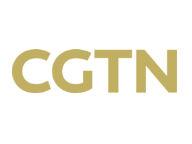Faculty News
—
Professor Aswath Damodaran discusses Uber's future
—

Excerpt from the Financial Times -- "'There is no clear pathway I can see for Uber to go from a high-revenue growth company to a profitable company,' says Aswath Damodaran, a professor of finance at the Stern School of Business. 'Normally the story for start-ups is that as revenues grow economies of scale will kick in, but that story is tough to tell with Uber.'"
Faculty News
—

Excerpt from the Financial Times -- "'There is no clear pathway I can see for Uber to go from a high-revenue growth company to a profitable company,' says Aswath Damodaran, a professor of finance at the Stern School of Business. 'Normally the story for start-ups is that as revenues grow economies of scale will kick in, but that story is tough to tell with Uber.'"


















